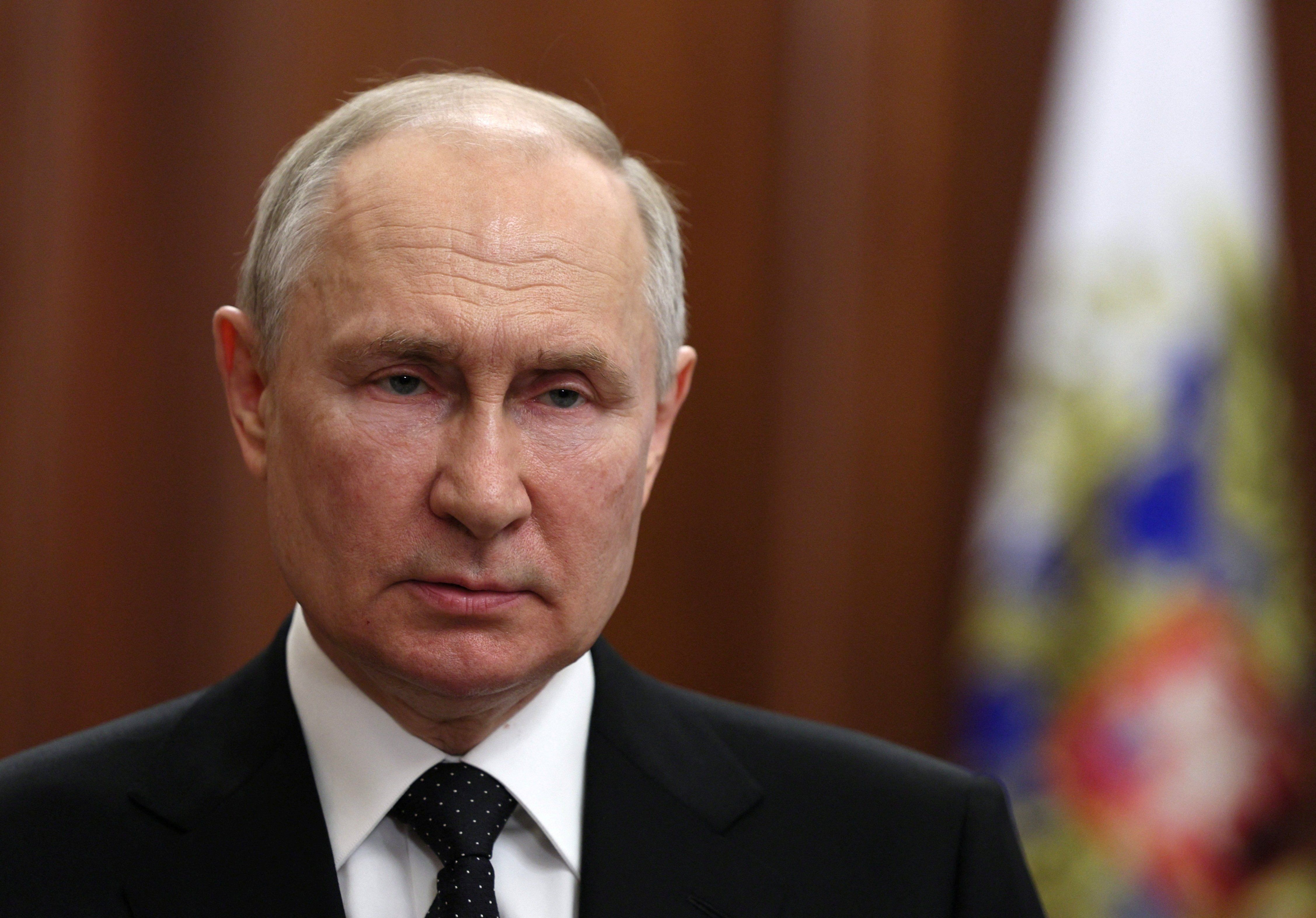As the dust settles over Yevgeny Prigozhin's rebellius interruptus, the single most brazen challenge to Kremlin authority in the history of post-Soviet Russia, there are more questions than answers about how the fallout might affect the future of the man who’s called the shots for 23+ years: Vladimir Putin.
Quick recap: In case you're living under a rock, Putin survived perhaps the worst 24 hours of his entire political career on Saturday.
Prigozhin, head of the Wagner Group mercenary outfit, challenged Putin’s authority by crossing the border from Ukraine and then advancing with his men en route to Moscow to demand changes in the Russian top brass. In a surprise plot twist, he ultimately backed off in a deal brokered by Alexander Lukashenko, the president of Belarus and a top Putin ally who will host Prigozhin in exile.
By Sunday afternoon, Wagner's men were withdrawing from southern Russia. Meanwhile, their leader kept conspicuously quiet, with his press office announcing that the famously outspoken and foul-mouthed warlord “says hi to everyone and will answer questions when he has good [cell phone] reception.”
Erm, okay. Back to the man Prigozhin was defying.
Putin has been bloodied — but is he in mortal (political) danger? Although not immediately, perhaps he is vulnerable in the long term, says Alex Brideau, Eurasia Group's top Russia analyst.
"I think this is survivable for now," he explains. Yet, the fact that an armed group was able to march with little resistance, make demands, and then get away with it could hurt Putin in the long run.
For one thing, the elites vying for power within the Kremlin might question the president's ability to keep things under control. Now that Putin has been challenged so openly once, many will naturally wonder if it could happen again. And that by itself is a problem: Losing the aura of invincibility is every strongman's worst nightmare.
Putin will also try to shape the narrative to influence public opinion. He likely hopes that most Russians believe the deal helped avoid bloodshed and that he didn’t just cave to a thug like Prigozhin (whose name Putin omitted during his Saturday speech, as he does when talking about jailed opposition leader Alexei Navalny).
"Even though this is an authoritarian regime, Putin does respond to how the public responds," Brideau says.
Also, how might the botched mutiny impact how Putin handles the war in Ukraine? That depends on the time frame.
In the short term, the crisis was so short-lived that it won't change much on the battlefield. Prigozhin's mercs were already on their way out, and many of them are expected to sign contracts with the Russian army. And while the Wagner fighters did outperform in the Bakhmut meat grinder, they were hardly essential to Russia's overall military campaign.
In the long term, though, Brideau thinks it could go "very badly, very quickly" for Putin if three things happen at the same time: his deal with the Wagner boss falls apart, Ukraine makes big gains in its counteroffensive, and Ukraine-linked militias — such as the ones that attacked Belgorod — see a window of opportunity to destabilize Russia by striking deep inside Russian territory.
However unlikely that perfect storm might be, it "adds to the overall tension and worry about Putin becoming more aggressive," Brideau explains, although the odds of a tactical nuclear strike remain low.